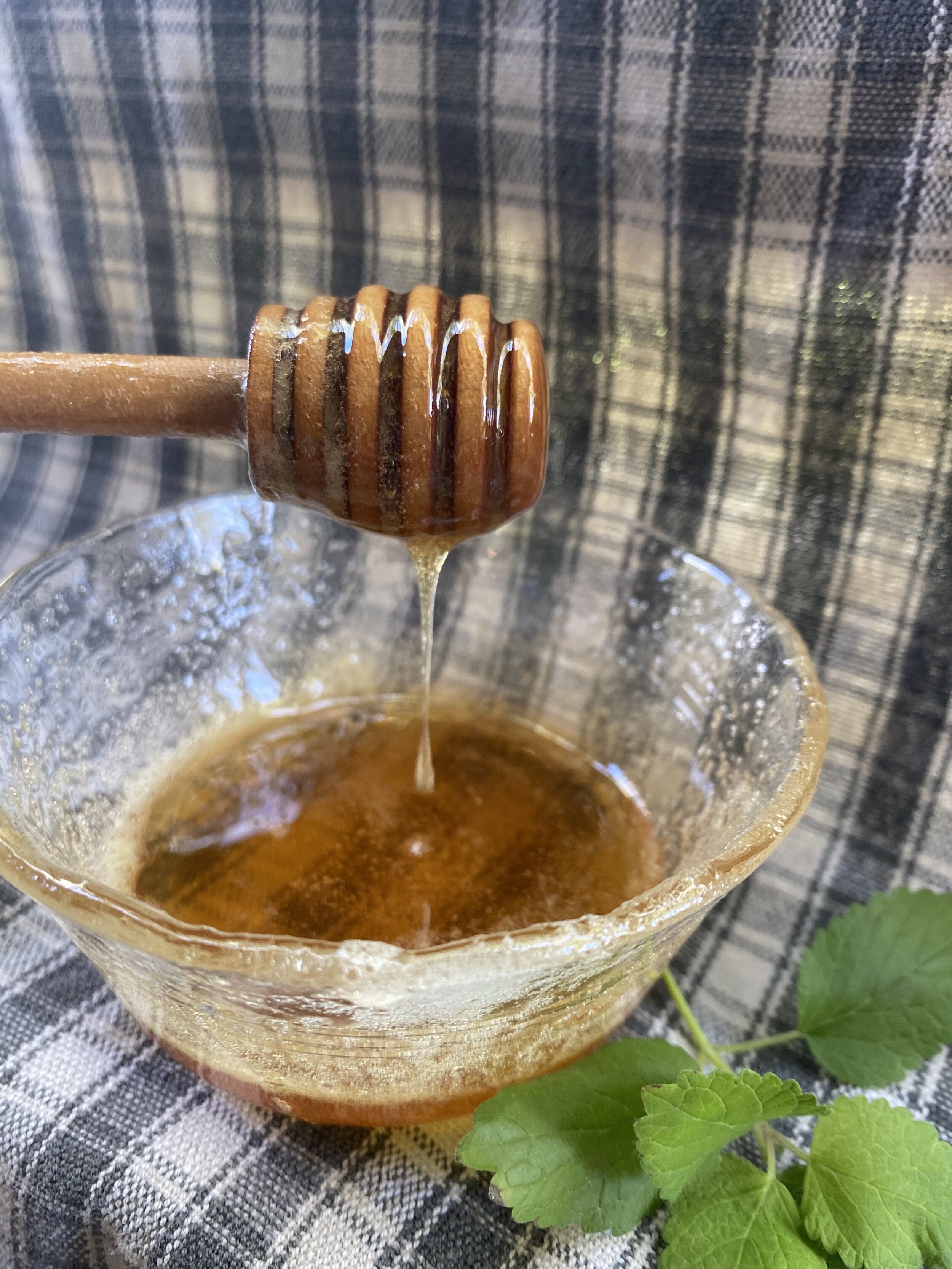Taking a Dive Into the Honey Pot: Does Buying Honey Help Bees?
Honey can be a hot topic of debate for vegans, but the topic of honey as part of a healthy agroecological farming system can be a bit more complicated. For many (including myself until last week), buying honey seems like a great way to support more bees! In our market-based economy where we are told we can “vote with our dollars,” it might make logical sense that buying more honey will encourage beekeeping and keep those bees alive! Unfortunately, there is a common misunderstanding of the scale at which honey is produced and how it’s produced in the first place.
While bees are insects, there are a lot of studies that show that bees can feel pain, and the descriptions of industrial beekeeping processes can make many empathetic humans give up eating honey. There are a handful of processes that are controversial, but we can start with smoking. Beekeepers often use a “smoker” to “calm” bees when they inspect their hives, as smoke interferes with the bees’ smell, which is their primary form of communication. Although the effect is reversible, too much of this smoke exposure imparts unduly distress onto the bees. At the extreme, entire hives are often gassed with cyanide if beekeepers deem it too expensive to keep them alive through the winter. So while honey is sometimes not considered an animal product, many vegans oppose honey consumption by humans on the basis of animal cruelty as well.
Honey is created when bees suck the nectar out of a flower and process it with other bees when they return to the hive. Bees use honey as a food source during winter, but on honey farms, beekeepers take the bee’s honey and replace it with a sugar substitute that doesn’t meet honeybees’ nutritional needs. As a result, many honeybees die of over-exhaustion attempting to reproduce the honey that they require, while others die of starvation or malnutrition. In recent years, the weakened immune systems of these bees has also led to a spike in diseases amongst honeybee populations that are often incurable and can lead to total hive collapse.
Rather than producing an abundance of new healthy homes for bees, industrial beekeeping creates lots of unhealthy hives that breed disease that can spread to other populations of bees in the natural environment. There are 4,000 bee species native to North America, while the honey bee is a domesticated European import. The diseases in honey bees spread through industrialized beekeeping can spread to the other species of bees and have led to further population decline.
While honey production is one part of why bees are shipped all over the country and put through these tough conditions, the main source of income for industrialized beekeepers is not honey sales, but rather the leasing fees they receive from transporting their prized pollinators to high value crop areas throughout the year (Nordhaus). Many of our most beloved crops from almonds to zucchinis (the list is long) are pollinated by bees, and in many areas of the country, like the central valley of California, farmers have to ship in pollinators to make sure their flowering crops get pollinated. The bee population is so low in the natural environment in that area that bees are the limiting factor in their harvest. This is the primary driver of industrial beekeeping at a national scale (we’re talking semi-truckloads of bees here, people) and it represents a response to a massive decline in our pollinator populations that many believe to be practically irrecoverable at this point.
Honey and other beeswax products are often found at farmers markets and can be part of sustainable honey production if done right. Much of the main stress on the colonies that leads to disease and decline is how often they are moved around in large scale beekeeping operations. Sourcing honey from a smaller farm that offers homes for pollinators can be a more sustainable option, or you could opt for honey alternatives. Agave, maple syrup, date paste, coconut nectar, or simple syrup are alternative sweeteners to honey.
References:
The Beekeeper's Lament: How One Man and Half a Billion Honey Bees Help Feed America, Hannah Nordhaus
https://www.fastcompany.com/90457908/eating-honey-is-more-complicated-than-you-might-think
